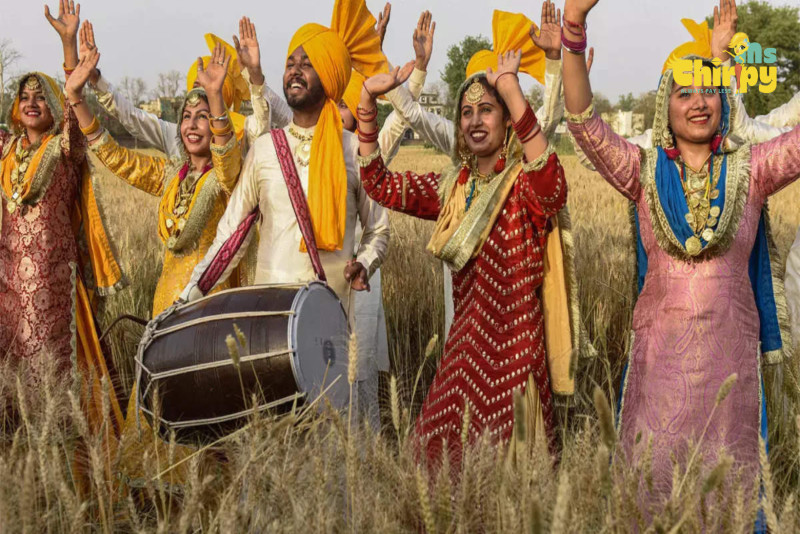
Baisakhi, Gudi Padwa, Ugadi, Vishu, Bihu- New Year Celebrations Of India
01-May-2023
The Hindu New Year, which is the new year of Samvatsar 2078, commenced on 13th April 2021, which is the Pratipada date of the Shukla Paksha of Chaitra month, as per the Hindu calendar. Navratri, an auspicious time for new beginnings, also begins on this day. However, astrologers predict that the neo-samvatsara beginning this year might bring malefic results due to the unusual yoga. On this day, the Sun enters the Aries sign at 2:32 pm, which also marks the Aries Sankranti, a coincidence that has not occurred for 90 years. Different parts of India celebrate the Hindu New Year in unique ways, such as Ugadi in Karnataka, Samvatsar Padvo among Hindu Konkani people from Goa, and Cheti Chand as New Year for the Sindhi community, and Navreh amongst Kashmiri Pandits. Baisakhi is celebrated across North India, while Gudi Padwa is celebrated in Maharashtra, Goa, and Konkan. Ugadi is celebrated in Karnataka, Andhra Pradesh, and Telangana, while Vishu is celebrated in Kerala and Tulu Nadu region in Karnataka. Rongali Bihu, also known as Bohag Bihu, is Assam’s harvest festival, which marks the beginning of the Assamese New Year.
Baisakhi : Baisakhi is a popular harvest festival celebrated mainly in the northern regions of India, particularly in the state of Punjab. It marks the beginning of the Sikh New Year and is also celebrated as a thanksgiving day by farmers for the harvest of rabi crops. The festival is usually observed on April 13 or 14 every year, depending on the solar calendar. On this day, people wake up early, take a dip in rivers or other water bodies, and offer prayers at gurudwaras. They also participate in colorful processions, perform folk dances like bhangra and gidda, and enjoy traditional Punjabi dishes like sarson ka saag and makki di roti.
Ugadi :
Ugadi is a festival celebrated in the states of Karnataka, Andhra Pradesh, and Telangana in India. It marks the beginning of a new year according to the Hindu lunar calendar. Ugadi falls on the first day of the Hindu month of Chaitra, which usually falls in March or April.
The word "Ugadi" is derived from the Sanskrit words "Yuga" (age) and "Adi" (beginning), meaning the beginning of a new age. The festival is also known as "Gudi Padwa" in Maharashtra, where it is celebrated on the same day.
On Ugadi, people clean their homes and decorate them with rangoli designs. They also prepare a special dish called "Ugadi pachadi," which is made with six different tastes - sweet, sour, salty, bitter, spicy, and astringent - to represent the different experiences of life. This dish symbolizes the idea that life is a mixture of different experiences, both good and bad, and that one must accept and celebrate them all.
People also dress up in new clothes, visit temples, and offer prayers to seek blessings for the new year. Ugadi is a time of joy, hope, and renewal, and it is celebrated with great enthusiasm and fervor in the southern states of India.
Bihu :
Bihu is a set of three different festivals celebrated in the Indian state of Assam. The three Bihu festivals are known as Rongali Bihu (also called Bohag Bihu), Kongali Bihu (also called Kati Bihu), and Bhogali Bihu (also called Magh Bihu).
Rongali Bihu is the most popular and widely celebrated of the three Bihu festivals. It marks the beginning of the Assamese New Year and is celebrated in mid-April, coinciding with the arrival of spring. During Rongali Bihu, people clean their homes, decorate them with colorful rangolis, and wear new clothes. They also exchange greetings and gifts with each other.
Kongali Bihu is celebrated in October, during the autumn season. It is a more somber festival, as it marks the time when farmers start sowing seeds for the winter crops. People light lamps and candles to signify the beginning of the sowing season and pray for a good harvest.
Bhogali Bihu is celebrated in January, during the winter season. It is a harvest festival, marking the end of the harvest season. People build bonfires, roast and feast on different types of food, and participate in various cultural activities.
Bihu is an important cultural festival for the people of Assam, and it is celebrated with great enthusiasm and joy. The festival is marked by traditional dances and music, feasting on delicious Assamese cuisine, and spending time with family and friends.